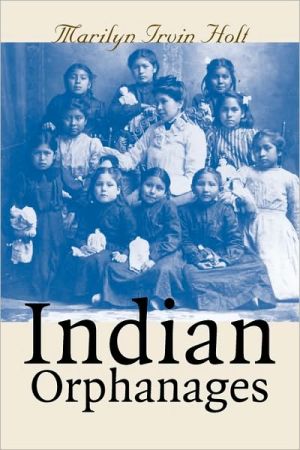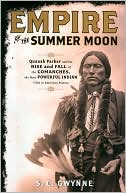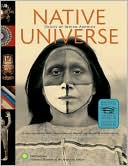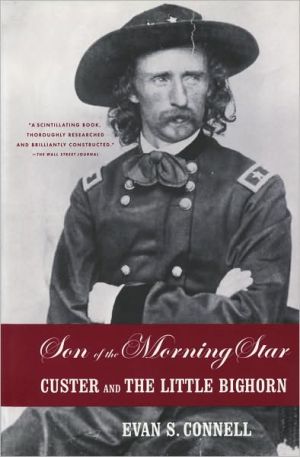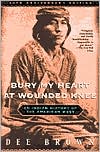Indian Orphanages
With their deep tradition of tribal and kinship ties, Native Americans had lived for centuries with little use for the concept of an unwanted child. But besieged by reservation life and boarding school acculturation, many tribes-with the encouragement of whites-came to accept the need for orphanages.\ The first book to focus exclusively on this subject, Marilyn Holt's study interweaves Indian history, educational history, family history, and child welfare policy to tell the story of Indian...
Search in google:
Winner of the Oklahoma Historical Society's Outstanding Book Award"An original and well-written account of a largely unknown chapter in American history that will be of signal importance to scholars in the fields of Native American studies and child welfare."—David Wallace Adams, author of Education for Extinction: American Indians and the Boarding School Experience, 1875-1928 "A lucid and balanced study that illuminates the connections among federal Indian policy, social welfare practices, and American Indian communities, families, and individuals."—Tsianina Lomawaima, author of They Called It Prairie Light: The Story of Chilocco Indian School "An important addition to the growing body of work on the history of dependent children."—Timothy Hacsi, author of Second Home: Orphan Asylums and Poor Families in America "By far the best book ever written on the subject."—E. Wayne Carp, author of Family Matters: Secrecy and Disclosure in the History of Adoptions Author Biography: Marilyn Irvin Holt is former director of publications at the Kansas Historical Society and has served as a research consultant for the PBS American Experience series. She is author of The Orphan Trains: Placing Out in America and Linoleum, Better Babies, and the Modern Farm Woman, 1890-1930 and editor of a volume devoted to twentieth-century teenagers' diaries and journals. Publishers Weekly Riding the wave of interest in adoption issues and Native American history, Holt (The Orphan Trains: Placing Out in America) examines the development of orphanages in a half-dozen major Native American tribes, covering the late 1800s, the Depression and the decades up to the 1978 federal reversal on Indian adoption policy. From the outset, community-oriented Indian society bewildered white missionaries and social workers, who deemed deviations from the nuclear family pernicious. Yet "orphans" didn't exist in, for instance, Shawnee culture, where tribal "grandmothers" helped raise the young, and families welcomed parentless children. Holt's balanced view of orphans' dual experience being equipped for mainstream culture and stripped of their own distinguishes her account. While most poor ethnics were subject to Americanization, Indians had it worse: many whites, bent on eliminating Native Americans, targeted orphanages, often the only available school. While many may have been awful (Holt doesn't say much about daily life), the orphanages kept kids on the reservation, unlike subsequent programs. Holt combs official reports, teasing her story out of dry numbers (enrollment stats, spending per pupil) from several orphanages. Thematic organization and further Indian perspectives (understandably scarce) would have made her book more accessible and compelling. Still, it's a useful, if turgid, volume for specialists. 19 photos not seen by PW. (Sept.) Copyright 2001 Cahners Business Information.
Introduction : roots of protest11Crumbling culture182First solution : Seneca493Orphans among us : Cherokee844After the war : Chickasaw1155The missionaries : Choctaw and Creek1486Tribal dissolution : Oklahoma1827Catholic outposts : Ojibway and Sioux216Epilogue : final transition251
\ Publishers WeeklyRiding the wave of interest in adoption issues and Native American history, Holt (The Orphan Trains: Placing Out in America) examines the development of orphanages in a half-dozen major Native American tribes, covering the late 1800s, the Depression and the decades up to the 1978 federal reversal on Indian adoption policy. From the outset, community-oriented Indian society bewildered white missionaries and social workers, who deemed deviations from the nuclear family pernicious. Yet "orphans" didn't exist in, for instance, Shawnee culture, where tribal "grandmothers" helped raise the young, and families welcomed parentless children. Holt's balanced view of orphans' dual experience being equipped for mainstream culture and stripped of their own distinguishes her account. While most poor ethnics were subject to Americanization, Indians had it worse: many whites, bent on eliminating Native Americans, targeted orphanages, often the only available school. While many may have been awful (Holt doesn't say much about daily life), the orphanages kept kids on the reservation, unlike subsequent programs. Holt combs official reports, teasing her story out of dry numbers (enrollment stats, spending per pupil) from several orphanages. Thematic organization and further Indian perspectives (understandably scarce) would have made her book more accessible and compelling. Still, it's a useful, if turgid, volume for specialists. 19 photos not seen by PW. (Sept.) Copyright 2001 Cahners Business Information.\ \ \ \ \ Library JournalHolt (The Orphan Trains) carefully examines the establishment of Indian orphanages in the United States during the late 19th and early 20th centuries, a previously little-studied subject. She discusses the emergence of orphanages in tribal communities ranging from the Seneca to the Sioux and their provision of basic care, including education. In reality, those orphanages underscored the destructive interchange with Euro-American peoples. Orphanages became necessary, Holt contends, after "war, disease, starvation, relocation, removal, ill-conceived federal policies, and missionary influences" had transformed traditional networks and kinships. Many non-Indian administrators viewed orphanages as a means to ward off complete immersion in white society. All the while, the orphanages worked to acculturate Indian children into the mainstream. Beginning in the 1930s, social welfare programs, foster care, and adoptions supplanted orphanages, whose closure often resulted in children being separated from "their own people." Not until 1978, with the passage of the Indian Child Welfare Act, did Congress recognize "the transmission of Indian culture to future generations." Though the chronological makeup can be confusing and the prose occasionally leaden, this is a solid, well-researched study that scholars will appreciate. Recommended for academic libraries. R.C. Cottrell, California State Univ., Chico Copyright 2001 Cahners Business Information.\ \
